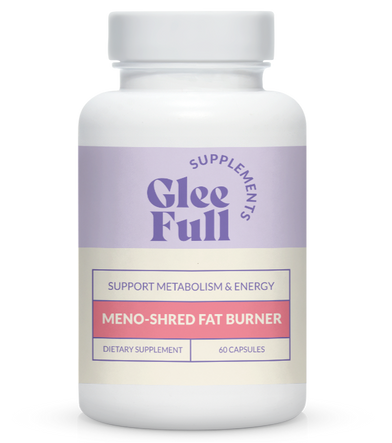Your Cart





As we age, our bodies go through several changes that can impact our energy levels. For women over 40, these changes can be particularly significant. It's important to understand how our energy level changes and what factors can affect it, so we can take steps to manage these factors and maintain our energy levels. According to a study published in the Journal of Women's Health, women over the age of 40 reported a decline in energy levels by an average of 20% compared to women in their 20s and 30s. Common symptoms associated with low energy levels in women over 40 include fatigue, lack of motivation, and difficulty concentrating.
As we age, our energy levels tend to decrease. This is due to a number of factors such as changes in metabolism, hormonal changes, and a decline in muscle mass. For women over 40, this can be particularly concerning as they may be going through menopause which can further exacerbate the issue. According to a study published in the Journal of Women's Health, women aged 40-59 report experiencing more fatigue than men in the same age group.
Common symptoms associated with low energy levels include feelings of tiredness, lack of motivation, difficulty concentrating, and even depression. These symptoms can have a significant impact on daily life, making it difficult to complete tasks and enjoy hobbies. It's important for women over 40 to be aware of these changes in energy levels and take steps to manage them.
There are many factors that can affect our energy levels as we age, including hormonal changes, lifestyle changes, diet, and sleep hygiene.
Hormonal changes, such as menopause in women, can lead to a decrease in estrogen levels, which can contribute to feelings of fatigue and low energy.
Lifestyle changes, such as a more sedentary job or less physical activity, can also lead to decreased energy levels. Additionally, stress, anxiety, and depression can all impact energy levels.
Diet is another important factor to consider. A diet high in processed foods and refined sugars can lead to energy crashes and fluctuations throughout the day. On the other hand, a diet rich in whole foods, fruits and vegetables, lean protein, and healthy fats can provide sustained energy throughout the day.
Sleep hygiene is also crucial for maintaining energy levels. Poor sleep habits, such as staying up late, using electronic devices before bed, and not getting enough sleep, can all lead to fatigue and low energy levels.
To manage these factors and increase energy levels, it's important to prioritize physical activity and exercise, practice stress-reducing techniques like meditation or yoga, eat a healthy and balanced diet, and establish good sleep habits such as sticking to a regular sleep schedule and limiting screen time before bed. Additionally, it may be helpful to talk to a healthcare provider about potential hormonal imbalances or other underlying health conditions that could be contributing to low energy levels.
Cognitive decline is a natural part of aging, and it can occur in various forms such as memory loss, decreased attention span, and difficulty with problem-solving. For women over 40, cognitive decline can become a concern as it can affect their ability to perform daily tasks, work efficiently, and maintain their quality of life.
According to the Alzheimer's Association, women are more likely to develop Alzheimer's disease, a form of cognitive decline, than men. In fact, two-thirds of Americans living with Alzheimer's are women. Additionally, studies have shown that cognitive decline can start as early as age 45 and can progress rapidly in women after menopause due to hormonal changes.
Common symptoms of cognitive decline include forgetfulness, difficulty with concentration, trouble with decision-making, and challenges with learning new information. It's important to address cognitive decline early on as it can have a significant impact on a woman's overall health and well-being.
Early detection and management of cognitive decline can help slow down the progression of the disease and improve the quality of life. This can be achieved through lifestyle changes, such as engaging in regular exercise, eating a healthy diet, and staying mentally active, as well as seeking medical treatment when necessary.
In addition to energy levels, cognitive function can also decline as women age. Various factors can affect cognitive function, including lack of sleep, stress, depression, and isolation.
Lack of sleep can impair cognitive function, as it affects our ability to concentrate and process information. It's important to establish a consistent sleep schedule and practice good sleep hygiene habits such as avoiding caffeine and electronics before bed.
Stress can also impact cognitive function, as it can increase cortisol levels in the body, leading to inflammation and brain cell damage. To manage stress, women can practice relaxation techniques such as meditation, deep breathing, or yoga.
Depression is another factor that can affect cognitive function, as it can lead to brain inflammation and reduced neural plasticity. Seeking professional help and engaging in therapy or medication can help alleviate symptoms of depression and improve cognitive function.
Lastly, isolation and lack of social interaction can also contribute to cognitive decline. Engaging in social activities and staying connected with friends and family can help improve cognitive function.
While there is no one-size-fits-all solution for improving both energy level and cognitive decline, there are some strategies that can be helpful. One approach is to use a dietary supplement specifically designed to support cognitive function and energy levels, such as Meno Boost.
Meno Boost contains a combination of nutrients and compounds, including Choline, L-Tyrosine, Taurine, Glycine, Citrus Bioflavonoid, L-Carnitine, Inositol, chromium, vitamin B6, and B12. These ingredients work together to support brain health and energy production, helping to improve both cognitive function and energy levels.
Choline is essential for the production of acetylcholine, a neurotransmitter that plays a critical role in cognitive function, memory, and learning. L-Tyrosine is an amino acid that supports brain function during periods of stress or fatigue. Taurine helps regulate cellular energy production, while Glycine helps improve sleep quality, which can contribute to improved energy levels.
Citrus Bioflavonoid is a powerful antioxidant that protects brain cells from oxidative stress. L-Carnitine helps transport fatty acids into cells for energy production, while Inositol is involved in the production of neurotransmitters.
Chromium helps regulate blood sugar levels, which can help prevent energy crashes, and vitamin B6 and B12 are crucial for energy production and brain function.
While dietary supplements like Meno Boost can be helpful, it's important to remember that they are not a substitute for a healthy lifestyle. Women over 40 should also focus on getting regular exercise, eating a balanced diet, getting enough sleep, and managing stress to maintain optimal energy levels and cognitive function.